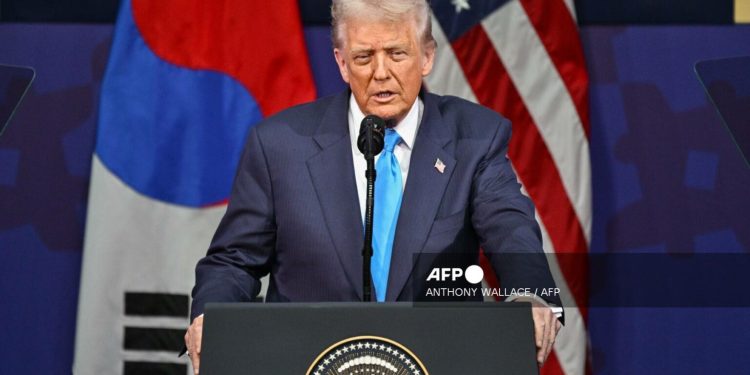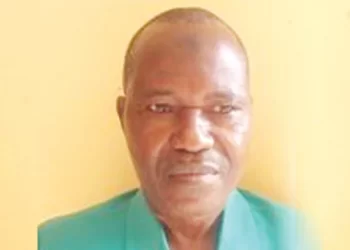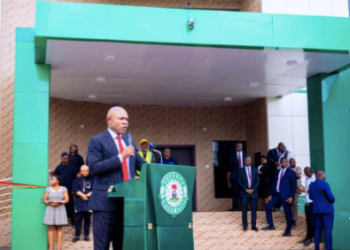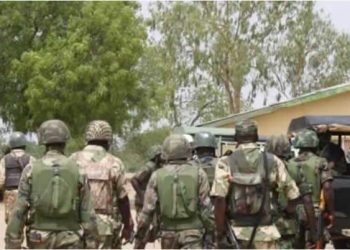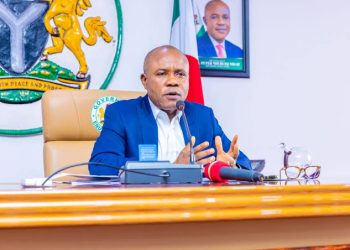By Segun Adediran
On November 20, the Chairman of the United States House of Representatives Foreign Affairs Africa Subcommittee, Rep. Chris Smith, chaired a congressional hearing on the alleged religious persecution of Christians by radical Islamist groups in Nigeria.
This hearing follows President Donald Trump’s historic redesignation of Nigeria as a “Country of Particular Concern” on October 31. The hearing, according to Smith, was to determine the course of action in the U.S. The Department of State will follow in response to the Nigerian government’s complicity in these crimes.
The dynamic between Trump and Nigeria often manifests as a high-voltage geopolitical theatre, where the US President’s blunt rhetoric—at times threatening military intervention “guns-a-blazing” over alleged persecution of Christians—clashes with the proud sovereignty of Africa’s most populous nation. He had once tagged Nigeria as “a hellhole”.
But while Trump may be brash and uncouth, other world leaders often harbour similarly harsh judgements. The seemingly casual phrase, “fantastically corrupt”, slipped from the lips of then-Prime Minister David Cameron to Queen Elizabeth II, instantly becoming a seismic diplomatic incident that shattered the genteel façade of Anglo-Nigerian relations.
Uttered on the eve of a major anti-corruption summit that Nigeria’s own President, Muhammadu Buhari, was set to attend, the unguarded comment—capturing the breathtaking scale of graft with one potent, paradoxical adjective—served not just as a harsh indictment of a country’s elite, but as an embarrassing moment of colonial candour caught on an open microphone, forcing Nigeria to choose between diplomatic outrage and a reluctant, public acknowledgment of a painful, entrenched truth.
Though Nigeria welcomes counter-terrorism assistance in response to Trump’s hard knock, it has firmly rejected the framing of its complex, multi-layered security crises purely as religious genocide, viewing the flamboyant threats as a domestic political overture to the US evangelical base rather than a pragmatic foreign policy directive.
This tension illuminates a strained, yet critical, bilateral bond, defined by strategic cooperation on counter-terrorism and trade, perpetually tested by the unpredictable and often undiplomatic style emanating from Washington’s highest office.
What then shall we tell the Americans? The question of whether Nigeria, Africa’s most populous country and largest economy, is a “failed state” as academics argue or “a disgraced country” as Trump trumpeted, is no longer confined to academic seminars.
It is a distress signal, a recurring headline that captures the profound anxiety felt by its nearly 230 million citizens.
While prominent international analysts have recently assigned this devastating label, a closer examination reveals a more nuanced, yet equally urgent, designation: Nigeria is a profoundly failing state, one teetering precariously on the brink of collapse but still retaining the residual scaffolding of national identity.
To qualify as a truly “failed state”—a category usually reserved for countries like Somalia in the 1990s or contemporary Yemen—a government must have completely lost its monopoly on the legitimate use of force, be unable to project authority across its territory, and cease to function as a full member of the international community. Nigeria meets several, but critically, not all, of these criteria.
The arguments for failure are grim and undeniable. Security, the state’s most fundamental obligation, has disintegrated into a patchwork of violence.
Non-state actors—from the persistent remnants of Boko Haram and the aggressive Islamic State West Africa Province in the North-East, to bandit gangs holding vast swathes of the North-West to ransom through mass kidnappings, and separatist violence in the South-East—routinely challenge and often overpower the Nigerian military and police. The government’s inability to effectively protect its citizens or secure its internal borders means it has ceded its monopoly on force in significant regions.
Economically, the country is in a state of paralysis. Despite being a major oil producer, the government has failed to translate this wealth into public goods.
Over 46 per cent of Nigerians live below the poverty line. Sky-high inflation, crippling unemployment, and a decaying infrastructure system—marked by inadequate power supply and collapsing roads—have strangled productivity.
This failure to deliver positive political goods—healthcare, education, and economic opportunity—has led to a profound crisis of legitimacy, a cornerstone of state failure.
When citizens routinely rely on private solutions (personal boreholes for water, private generators for power, private security guards for protection) rather than the state, the social contract has been functionally dissolved.
Yet, Nigeria has not failed. Nigeria remains a full, highly active member of the international community. It is a regional powerhouse, leading the Economic Community of West African States and frequently taking up international peacekeeping roles.
Its embassies function, its borders, however porous, are internationally recognised, and its central government still controls the capital, Abuja, and manages foreign relations and trade policy. This external sovereignty is a critical difference between a failing state and a failed state.
Despite deeply flawed elections, the country has maintained a commitment to a democratic process, culminating in a transfer of power in 2023.
More importantly, Nigeria’s judiciary, while often politicised, retains a degree of independence, as evidenced by recent high-profile rulings against government actions.
Furthermore, the sheer entrepreneurial energy of the Nigerian people, often referred to as “Nigerian resilience”, acts as a massive, informal private-sector buffer, compensating for government deficiencies and preventing total economic collapse.
The state has failed its people, but the people have not yet failed their country.
The current situation is, therefore, not one of failure but of high-speed decline. Nigeria possesses the skeletal framework of a state—a flag, a seat at the UN, a functional judiciary—but the vital organs of governance have been poisoned by corruption and crippled by insecurity.
The danger of labelling Nigeria as merely “failed” is that it implies a finality, justifying withdrawal and external triage.
The US International Religious Freedom Act of 1998, under which Trump declared Nigeria a “country of particular concern”, does not prescribe military intervention. Rather, it focuses on using the US foreign policy apparatus to promote religious freedom and applies sanctions, not intervention.
The reality is that Nigeria is still salvageable, but time is running out. The urgent need is not for international intervention in the style of a failed state, but for a domestic reckoning—a restructuring of the federal system, a radical reform of the security apparatus, and an aggressive, transparent fight against the endemic corruption that fuels its decline.
Let us seriously work on this project. The Giant of Africa is standing on shaky, crumbling legs. It is not yet on the ground, but without immediate, drastic structural repair, its fall will create a geopolitical shockwave felt across the entire continent.
Adediran writes via [email protected]

